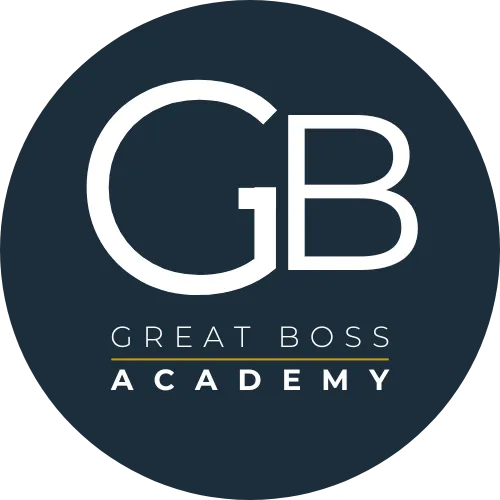
Business mentoring for dental leaders
01962 587787
Practical insights for dental leaders who want to build thriving teams, cut stress, and lead with clarity.

Energy is the New Currency: How to Get More Done Without Burning Out
Time management is an essential skill, but it’s not the full picture. Managing your energy is just as important—if not more so—when it comes to productivity and well-being. Think of energy as the fuel for your day: without it, even the best time-management systems will fail. By aligning your tasks with your natural energy levels and building recovery into your routine, you can achieve more without running on empty.
Work With Your Energy Rhythms
We all have natural energy rhythms throughout the day, often referred to as circadian rhythms. For most people, energy peaks in the morning, dips after lunch, and rises again in the late afternoon. The key to managing your energy is to match your tasks to these peaks and troughs.
Use high-energy periods for demanding tasks, like deep work or creative projects.
Save low-energy times for routine or administrative tasks that require less focus.
This alignment helps you work smarter, not harder, while maintaining momentum throughout the day.
Boost Energy Throughout the Day
When we’re busy, it’s easy to neglect the small habits that help us stay focused and productive. But taking care of your energy is just as important as managing your time. Here’s how to integrate simple yet impactful practices into your day.
Take Short, Intentional Breaks
It’s tempting to push through long hours without pausing, especially in a fast-paced environment like a dental practice. But research—and experience—shows that short, intentional breaks can significantly boost productivity.
This idea is perfectly illustrated in Dale Carnegie’s classic book, where he shares the story of workers lifting pig iron over a century ago. It turns out their efficiency skyrocketed when they were given short, regular breaks. It’s a funny story with an important lesson: our bodies and minds perform better when we pause to recharge.
Every 90 minutes, take a moment to stretch, walk, or step outside for some fresh air. These short bursts of movement help reset your focus and prevent fatigue from creeping in. You’ll return to your tasks with renewed energy and clarity.
Stay Hydrated and Fuel Your Brain
Hydration is often overlooked, yet it’s vital for maintaining focus and efficiency. I’m always surprised by how quickly dehydration sets in, even when I don’t feel thirsty. The truth is, by the time you’re thirsty, you’ve already lost about 10% of your efficiency—and that’s not a margin anyone can afford on a busy workday.
Use an app to track your water intake if you find it hard to remember (Thirstic is my preference, and it’s free). And don’t just rely on hydration alone; what you eat matters too. Snacks like fruit, nuts, and yoghurt provide essential nutrients that keep your brain functioning optimally. The healthy fats in nuts, for example, are fantastic for brain health. Keeping these snacks on hand ensures your body and mind are fuelled for the demands of the day.
Practice Simple Mindfulness Techniques
Mindfulness doesn’t have to be anything “woo-woo” or overly complicated. It’s about taking a moment to reset and centre yourself. Something as simple as taking three deep breaths can lower your stress levels and sharpen your focus.
Alternatively, try a quick meditation or just pause to reflect on how the day is going. Even a brief moment of stillness can help you regain clarity and composure, especially during hectic periods.
Incorporating mindfulness into your routine is about creating mental space, not adding another “task” to your day. These small, intentional pauses can make a big difference in how you feel and perform.
By integrating these three practices into your daily routine, you can enhance your energy levels, maintain focus, and get the most out of your workday.
Embrace Recovery as a Productivity Tool
Recovery isn’t a luxury—it’s essential for sustainable productivity. Incorporate recovery practices into your routine to replenish your energy.
The Weekly Reset: Reflect, Celebrate, and Plan Ahead
A weekly reset is a simple but powerful ritual that sets the tone for the days ahead. It allows you to pause, reflect, and recalibrate, ensuring you’re always moving in the right direction.
You can use tools like Michael Hyatt’s Full Focus Planner or even a simple framework like Keep, Start, Stop:
Keep: What did you do this week that worked well and should continue?
Start: What new habit, task, or behaviour would make a positive difference?
Stop: What isn’t serving you and needs to change?
Gratitude is another key component. Take a moment to reflect on your wins, big or small, and what you’re thankful for. Gratitude isn’t just a feel-good exercise—it’s a proven way to boost your mindset and build momentum.
Finally, identify your three big priorities for the week ahead. These should be the most impactful tasks or goals that will drive progress and success. By focusing on just three, you avoid overwhelm and create a clear, manageable plan.
Quarterly Reviews: Realign and Recharge
Quarterly reviews are where the magic happens. Taking a full day once every three months to step back, evaluate your progress, and realign your goals is invaluable. This isn’t just about checking off tasks; it’s about creating space to think strategically and let new ideas emerge.
Use this time to:
Reflect on your wins and challenges over the past quarter.
Revisit your goals and ensure they still align with your priorities.
Adjust plans based on new insights or changes in circumstances.
Slowing down allows you to see the bigger picture and make better decisions for the months ahead. Treat this time as sacred—a non-negotiable part of staying on track.
Prioritise True Downtime
Downtime isn’t just about switching off physically; it’s about truly resting and recharging your mind and body. It’s important to understand the difference between rest and passive consumption, like watching TV or scrolling through your phone. While these activities might seem relaxing, evidence suggests they don’t provide the restorative benefits of real rest.
Instead, focus on activities that genuinely recharge you:
Time with loved ones: Deep conversations, shared laughter, or simply being present with the people who matter most.
Hobbies: Whether it’s painting, gardening, or playing a musical instrument, hobbies offer a creative outlet that energises you.
Restorative activities: Walking in nature, reading a book, or engaging in mindful practices help clear your mind and lower stress.
The key is to disconnect from digital content and reconnect with activities that nourish your soul. Think of downtime as an essential part of your productivity toolkit—it’s what allows you to show up fully for your work and life. By incorporating weekly resets, quarterly reviews, and intentional downtime into your routine, you create a rhythm of reflection, alignment, and rejuvenation.
These recovery practices ensure you’re working from a place of strength rather than running on fumes.
Energy Management: The Key to Doing More With Less
Managing your energy is the missing link in traditional productivity advice. When you align tasks with your energy levels, take intentional breaks, and prioritise recovery, you’ll find it easier to stay focused, avoid burnout, and get more done.
Start small. Tomorrow, plan your day around your energy peaks and commit to taking one short, intentional break. Over time, these small adjustments can transform your productivity—and your life.
If managing time and energy feels like a constant battle, you’re not alone—and there’s a better way. Join me on 31st January for a 30-minute Masterclass on Time and Energy Management, where we’ll take a look at overcoming overwhelm, creating focus, and making room for what truly matters. This practical session is designed to help you reclaim control of your time and energy, so you can lead your practice and your team with confidence. Don’t miss this opportunity to kick-start the year with strategies that work. Register now to secure your spot!




